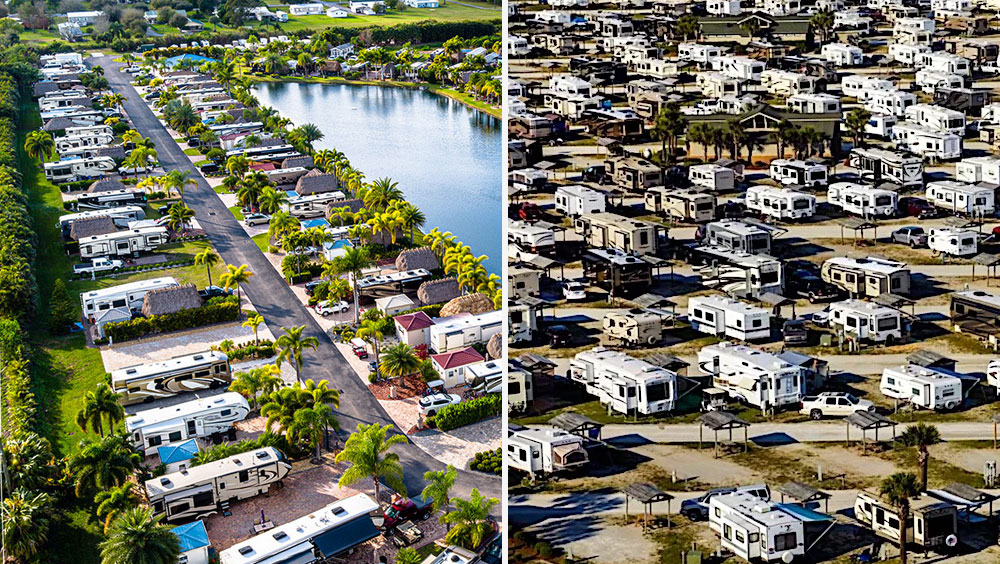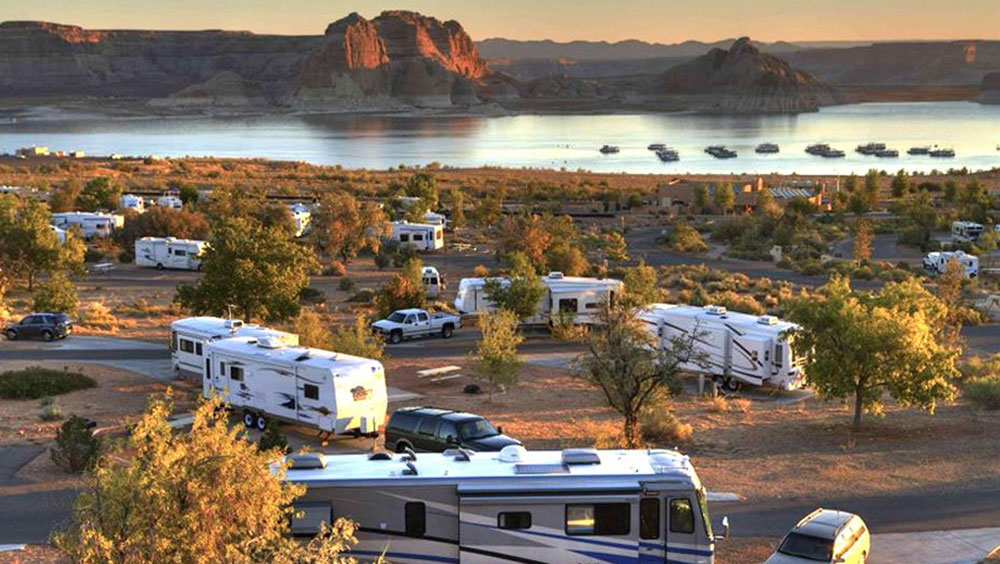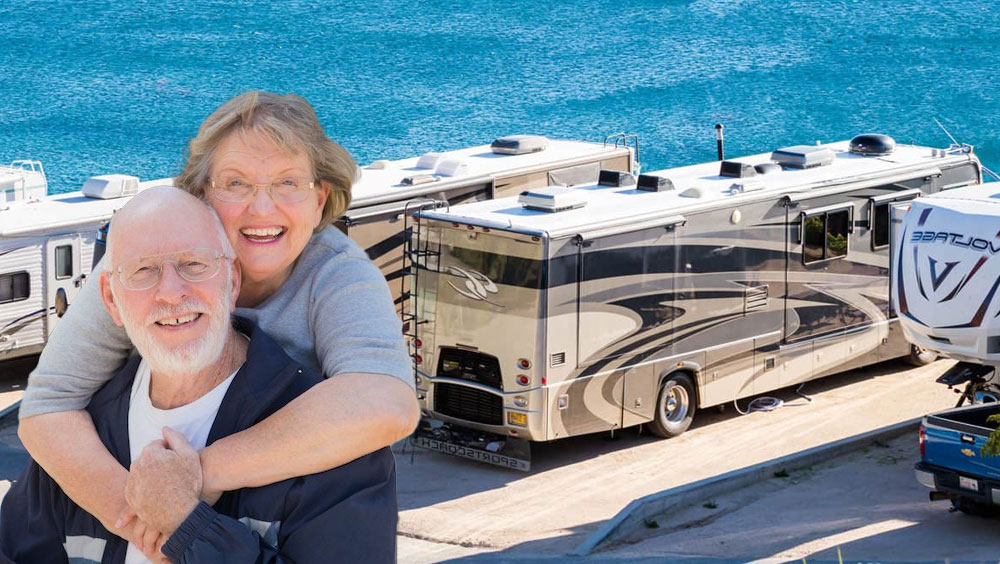You don’t necessarily need to have a vagabond soul to appreciate settling down for retirement in an RV. However, if you dream of long days spent motoring along into unchartered (or even familiar) territory, then RV retirement may be just what this new, slower part of your life needs. After all, you have no job tying you down, and your kids are long grown and living on their own. Why shouldn’t you spend this part of your life catering to your inner rolling stone?
Pros and Cons of RV Life for Retirees

The COVID-19 pandemic lit a fire in the RV industry. Around 10 million U.S. households now own RVs, and about 10 million folks are actually living in recreational vehicles around the country. There are some compelling reasons that you might want to spend your retirement living in one, and a few equally convincing reasons why RV life might not be for you, as a retiree.
Some reasons you might find RVing a suitable way of life once you retire:

- You only need a modest budget. Income in retirement generally takes a nosedive, and if this explains your retirement portfolio in a nutshell, then RVing lets you live life on all eight cylinders but on a budget. Many places allow you to park your RV for free, and in most areas, you pay zero property taxes on a motorhome.
- RVs are affordable, for the most part. Because they depreciate quickly in value, just like a car, used RVs may be in excellent shape but quite the bargain.
- You can go where you want to go without paying for lodging. It goes without saying that RVing is a great way to see places you might not otherwise afford to see, due to having to pay for accommodations when you get there. Meals are also cheaper when traveling since you cook everything at home.
- You can visit family for long periods of time without inconveniencing them. You have your own place to stay when you roll up to your adult children’s homes in other states, for example. This gives you more time to spend with kids and grandkids without wearing out your welcome in the guest bedroom.
Some reasons that RVing and you may not be a good fit during this period of your life:

- RVs lose their value fast. Because RV depreciation is swift, a new RV instantly becomes a used one when it rolls off the lot.
- RVs use a lot of fuel, and fuel is expensive. Having a tow-along car can help, but you’ll need gas money to get where you want to go, with some RVs averaging just 8 miles to the gallon.
- RVing can be a lot of work. Maintenance and upkeep tasks can be tedious, including monitoring and dumping waste from the RV.
- RVers live “up close and personal,” literally. No matter how much you love someone, it can be trying (to say the least) to be within a few feet of your traveling partner all the time. All. The. Time.
The Bottom Line

There you have it — some pros and cons of retiring in an RV to consider. Although it’s not for everyone, many retirees who find themselves drawn to the open road seem to love RVing and have no regrets.


